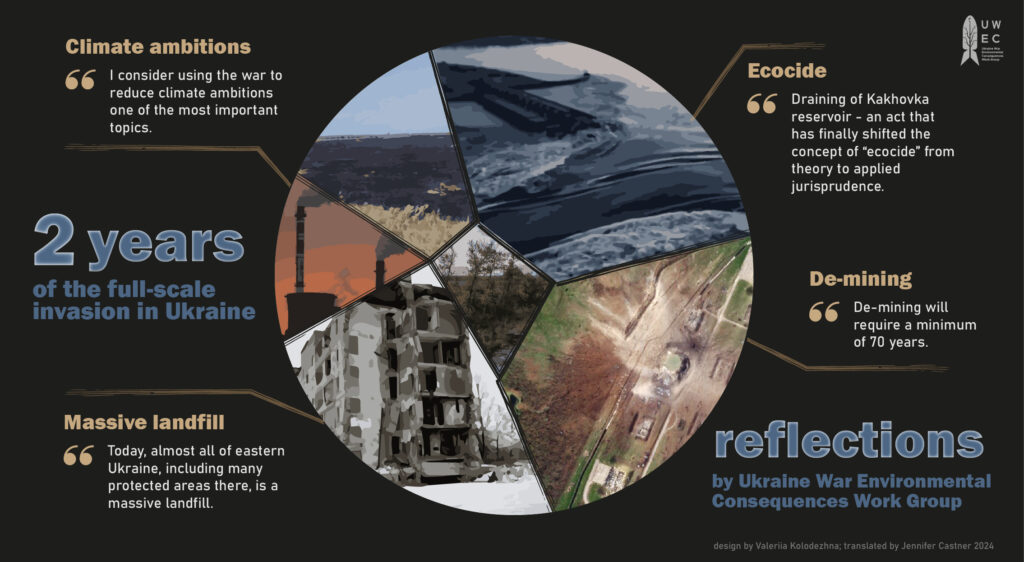Two years into Russia’s war in Ukraine
Two Years into Ukraine War: Experts Reflect on Environmental Casualties

February 24 marked the second anniversary of Russia’s full-scale invasion of Ukraine, the costs of which have been enormous. Focusing on environmental losses, editorial team members of our partner Ukraine War Environmental Consequences Work Group reflected on what they saw as the conflict’s most important environmental consequences.
Reduction of climate ambitions. What are perceived as more pressing issues—energy and food security, and militarization, for example—are diminishing emphasis on efforts to address climate change in many countries, imperiling actions to avoid catastrophic consequences of global warming.
Garbage generated. War produces gargantuan mounds of trash, from destroyed houses and burned military equipment to piles of single-use packaging and household waste. Today most of eastern Ukraine is a massive landfill, requiring decades to address the mounting garbage crisis.
Environmental consequences must be addressed now. As the war enters its third year, prospects for a quick victory are fading. The steep toll that Russia’s war is taking on the environment must be addressed without waiting for victory.
Destruction of the Kakhovka Dam. In early June 2023, an explosion, almost certainly caused by Russian forces, destroyed the Kakhovka Dam on the Dnipro River. The destruction of the dam, whose nearby reservoir served homes and industries across a huge area, as well as a vast agricultural heartland, brought a catastrophic level of destruction to the environment, the economy, and lives of people. Solutions to help people adapt and creation of new efficient water supply systems must be created now, not after a hypothetical “restoration of Kakhovka hydroelectric station.”
De-mining. The land area of Ukraine requiring demining already exceeds an area the size of Austria and Switzerland combined. It is estimated that de-mining operations to clear the country of landmines and unexploded ordnance will require a minimum of 70 years.
Brain drain. The profound environmental and ecological impact needs specialists to plan for restoration and to monitor the country’s “green” status. The displacement of environmentalists and conservation workers and their tragic deaths as soldiers in Ukraine’s armed forces has created a “colossal crisis” in the availability of experts capable of overseeing conservation work and recovery projects.
